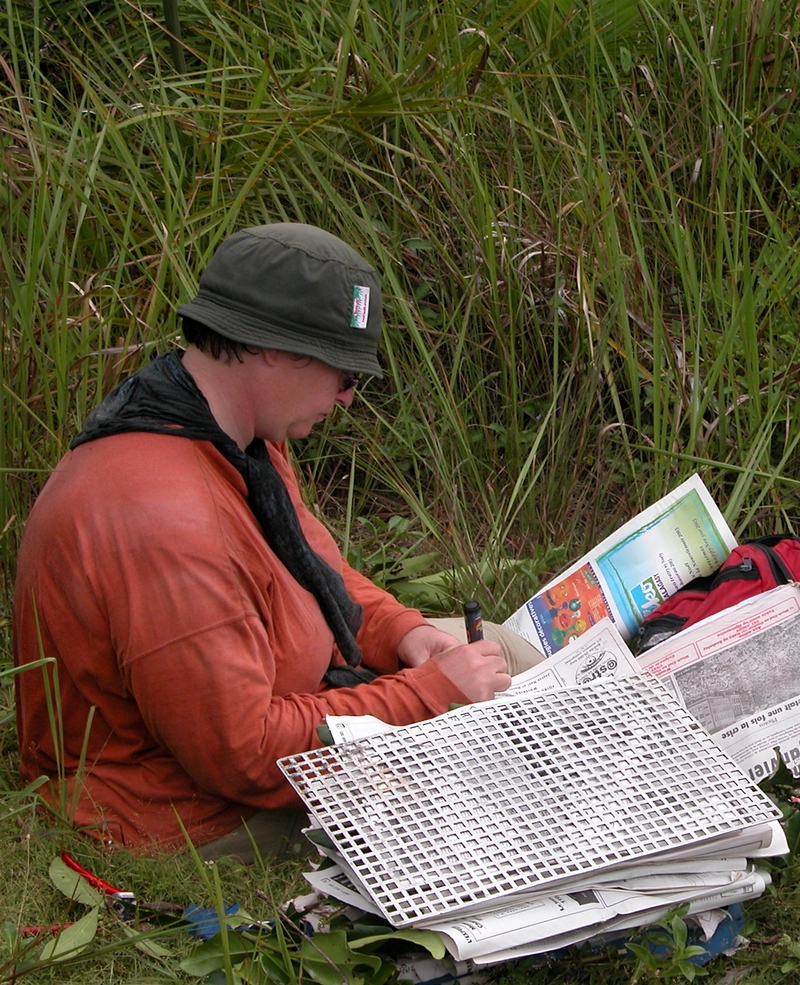Petra De Block
|
Research scientist |
 |
I am a taxonomist, doing collection-based research on African and Madagascan representatives of the Rubiaceae or coffee family. I undertake revisions and monographs because this is crucial to the understanding of biodiversity. Correctly delimiting species boundaries and attributing these species to the correct genus (and tribe) highlights existing lineages within a plant group. A solid taxonomic foundation lies at the base of conservation programmes that aim to reduce biodiversity loss.
Rubiaceae are highly diverse in many characters such as flower and fruit morphology, placentation, pollen and seed-coat structure, as well as in biological and ecological characteristics. Documenting the diversity within a plant group helps to identify key innovations that resulted in evolutionary success and to discover drivers of adaptive radiation. Looking at morphological and anatomical characters of plants, one cannot help but become interested in things such as the structure and variation of the secondary pollen presenter or the seed-coat, the formation processes of the corolla tube, etc., and realize that plant species have many different ways to obtain similar results.
Contrary to common believe, we do not yet know all plant species. We have not even collected all plant species yet. Therefore, it is important to undertake field work and to collect plant material (herbarium, DNA, liquid preserved, wood, photographical and other material) in all remaining natural vegetation.
Taxonomy is an integrative science. In the past, we studied morphological characters together with anatomical, palynological, biological, ecological and chorological data. Nowadays, we also integrate phylogenetic data in order to understand the relationships and evolutionary history of taxa. This requires collaboration between experts of several disciplines, but results in more natural classifications and a better understanding of the evolutionary history of plant groups. Not seldom, (international) collaborators become good friends. In other words, it is great to be a taxonomist working at Meise Botanic Garden.
Degrees
- PhD, Antwerp University, U.I.A., Belgium (1997)
- Licentiate/MSc, Antwerp University, U.I.A., Belgium (1990)
Employment history
- Researcher, Meise Botanic Garden (2001-ongoing)
- Postdoctoral researcher, Fund for Scientific Research, Flanders (1997-2000)
- Research Assistant, Fund for Scientific Research, Flanders (1993-1996)
Research interests
- Systematics of Rubiaceae, with a focus on monographic and taxonomic studies of African and Madagascan representatives
- Comparative morphology, anatomy and ontogeny of Rubiaceae
Current research projects
- Revision of the Madagascan Pavetteae genera Coptosperma, Exallosperma, Helictosperma, Homollea, Paracephaelis, Pseudocoptosperma, Robbrechtia, Schizenterospermum, Tarenna, Tarennella, Tulearia.
- Revision of Craterispermum in Madagascar
- Revision of Ixora in Madagascar
- Corolla development in Rubiaceae
- Seeds and seed-coats in Rubiaceae
Professional activities
- Member of Scientific Council of Meise Botanic Garden (2014-ongoing)
- Subject editor Gentianales, Phytokeys (2018-ongoing)
- Editor for IUCN Red List Conservation Status Assessments, Plant Ecology and Evolution (2020-ongoing)
- Fellow of the Linnean Society of London (2010-ongoing)
Publications
FRIS Research Portal



